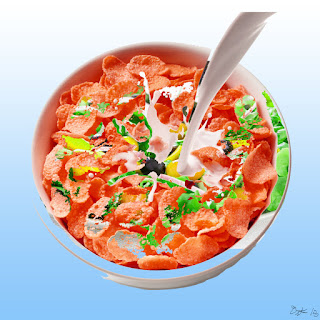The Persecution of Karens
There you are. Staring at your hypnotic black rectangle. You see something in the feed. A video of an older lady (mostly white) yelling at someone in public. It's a spectacle. It gives us a little boost of attention and energy. We become reactionary. How would a woman get so unhinged the public sphere? Well, now everyone is a documentarian. A surveillance state of a conspicuous consumers and unconscious actors. It's easy to judge someone or get mad at someone when you don't know them and its filtered through the sticky webs of the internet.
It's easy to call these unhinged somewhat middle aged strangers in the feeds as names. Sure, the name Karen sticks, but it's also a label that separates us from the humanity of the person we are viewing. Once we stick to a label, we limit that person and more importantly limit ourselves. These labels eliminate the whole picture. The compassion, the curiosity and the willingness to understand the actions of others. When we manufacture that Karen label we also risk us becoming what we hate or despise. An unhinged reactionary person who doesn't understand the whole picture.
These "Karens" are suffering and most likely unconscious individuals. They are wrapped up in their own traumas. Some that we may share. Some that we may not even understand. Now in this age, it's almost impossible to get away with going crazy without it being filmed. Then it spreads. Like wildfire at times. Then this person is suffering from past trauma is lambasted, categorized and hated across the world. People will without a thought press a button just to share a video of this Karen. Maybe they find it funny. Maybe it conjures up an emotional reaction. Now this Karen is defined by a video that is probably less than One percent of their entire existence. They are thrusted into the trials and tribulations of strangers who want nothing more than to make fun or even wish harm on these individuals. A mob of clowns, demons and dolts. ( Now here I go labelling. )
What good does it to write off all these suffering individuals as a group of cultural construct that integrates the into the lexicon of our society? Are we showing compassion or even being proactive in providing a service to get these people the help they need? Sometimes it takes a long gaze in the mirror that we might be doing more harm than good in a world that most definitely needs less harm. What are we projecting? What are we really doing when we collectivize people into categories? Are we stripping them of their individuality and the whole picture of suffering?
Sure these Karens can be a spectacle, but where does it go? Is there a point where we can drop the act and really get to the root cause and not the symptoms that we often revel in? If I were in the shoes or dress of one of these Karens, I could really attempt to understand why they act the way they act. The label would fade. I would try to imagine why someone would be so rash or reactionary. Was there times in my life that never got caught on film where I was acting out? Maybe not a stranger, but a loved one. How did I feel afterwards? Vindicated? Regretful? Relieved? Most importantly what was my reaction before and after this event of acting out? Now you see. Do we consider these things when watching videos of these so called Karens? Once we stop the inward journey, we tend to focus more on the outrage others.
Do we really think we are better than other people we label? What are we compensating for?
What are we projecting?
Maybe these Karens need therapy. Maybe they need more love and to address their traumas. Does it really matter what we think about these Karens? How we shoo them off? How we write them off. Karens aren't real. They are an idea. That idea that tends to inform our perception. Well, it more or less distorts it rather. We make it more real than it actually is. And the bad thing is that is about people. People with feelings, trauma and stories. People that would probably be us if we had the exact environmental and genetic components.
Are we patient enough to get the whole picture? Are we willing enough to take a breath and be ok with the uncertainty that we don't have the whole picture? Who are we to judge? Who are we label and discriminate? These Karen videos are reflected in the pupils of our eyes. Like a mirror, but it's not directly looking at ourselves, but an amorphous idea of who or what we are in that moment.
How many times have we acted like a Karen in our own head? Just not in the real world. Did we give ourselves a name? Did we call ourselves things we normally wouldn't call ourselves? Our wired, turbulent and reactive mind can sometimes transport into a dark part of our imagination. Many of us like to run away from that.
You and I are both Karens in our own right.
We run towards comfort, security and certainty. Most of us can keep it in our own heads and let it play out. Maybe we take a time our or we distract ourselves, but we never act out what we perceivably would like to do or think we would like to do in our own heads. What does that say for the so called Karens who don't have that control? Should we further the shame of people who can't seem to contain their trauma or unchecked rage? Should we throw them in the town square as we laugh at them and scorn them? Doesn't seem too civilized to me.
DG



Comments
Post a Comment